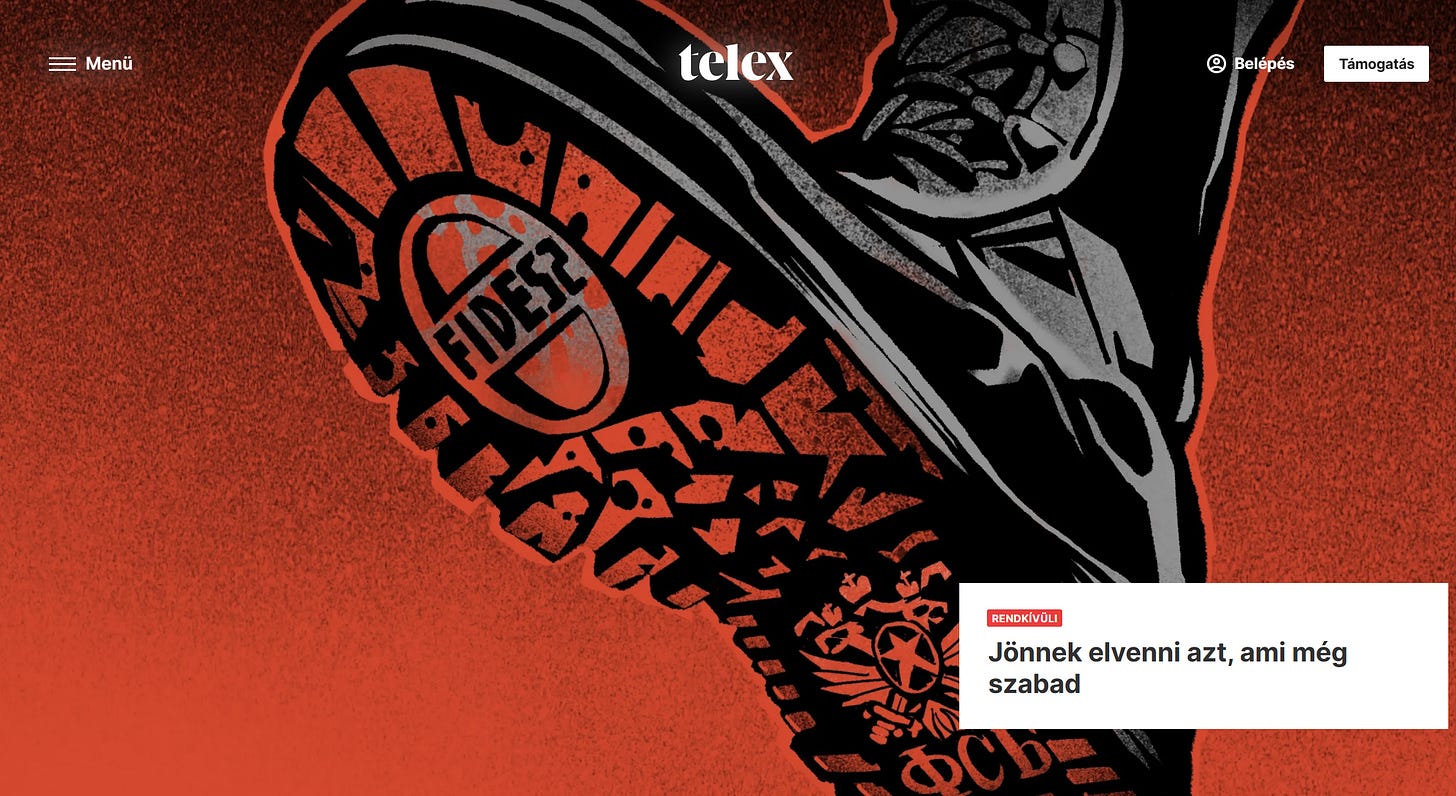The right atrium of darkness
Hungary’s new foreign agent law shows how authoritarian regimes cut off the lifeblood of independent media: funding.
"They are coming to take what is still free" reads the headline on Telex, one of Hungary's largest news portals, reflecting on the Russian-style "foreign agent" law the governing Fidesz party submitted late Tuesday night.
I try to limit Hungary coverage in this newsletter to stories with broader relevance, partly because 90% of you don't live here and understandably have less invested in our tiny media scene, and partly because, like an ER doctor witnessing too much suffering, I need some emotional distance. The news is rarely good, and with so much skin in the game, I might not be the most impartial observer.
This week, however, marks a turning point. After fifteen years of slow erosion, we are now plunging headlong into authoritarian darkness.
Since I write about media funding and finance, I'm probably guilty of seeing funding angles everywhere; when you have a hammer, everything looks like a nail. But this proposed law demonstrates precisely how editorial independence and financial sustainability are deeply, inextricably linked.
In (post)modern information autocracies, when governments lose popularity after years in power, they don’t silence critics through arrests or direct censorship, at least not right away. Instead, these regimes excel at selective repression, applying pressure precisely where it hurts most.
By labeling independent organizations as "foreign agents," the government avoids outright bans, yet makes it nearly impossible for newsrooms, civil society groups, and others to secure funding from any source, foreign or domestic. Without resources, even the most courageous journalism eventually falls silent.
While this attack will wound newsrooms and civil society organisations most immediately and visibly, its ultimate target is far broader. As the editorials on Telex, 444 and other independent platforms rightly emphasize, this legislation comes for the freedom of every Hungarian: the right to free expression, to meaningful participation in public life, and to access information beyond government-approved narratives.
Foreign funded until proven defunct
In early March, our organization, the Center for Sustainable Media (along with many others) was named in the report of Hungary's Sovereignty Protection Office. As I explained then, we had no idea what we were accused of or what consequences these unspecified "crimes" might bring. Today, I can report that we still have no idea what we've done, but the potential consequences are becoming crystal clear.


